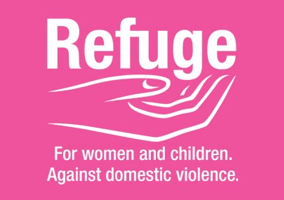A lot has been written in recent weeks about the level of trust in charity, and about the sector’s relationship with the public.
The main finding, from my point of view, has been that we can’t generalise about all types of charity. The sector’s image problem belongs to less than 200 charities, all of which are household names, and all of which make their living with either donations or (in a few cases) membership income.
Which is not to say it’s a small problem. These charities, between them, probably receive at least a quarter of the total income of the sector.
Why big charities?
The Charity Commission’s trust report shows that when the public think of charities, they think of big household names, the Commission report says. So when they say they don’t trust charities, it’s these organisations they mean.
The charity they are thinking about relies largely on fundraising, has several hundred or a few thousand employees, and delivers services to those suffering some kind of systemic disadvantage – particularly children, the elderly, animals, medical causes, and maybe also overseas aid.
This description also fits the charities have also attracted almost all the negative coverage in national newspapers, too.
If it doesn’t apply to you, then we have little information about whether the public trust you. They just aren’t thinking of you when they answer the question.
Do we trust these measures of trust?
There's a big of a chicken and egg scenario here. Do the public focus on these charities because they’re well known? Or are they well known because these are the ones the public care about? I suspect it's both. Trust measures can be flaky, but it’s not nonsense.
The interesting thing is that people are still giving to the big charities, so it doesn’t appear as if trust is fading.
But look at the cost of fundraising. Giving might not have gone down, but the cost of raising £1 has gone up by 40 to 50 per cent or more since the turn of the century. So it’s getting harder to raise the same cash from the public.
What are big charities trusted to do?
Big charities are trusted to be nice, but not effective, according to the Commission survey.
They are most trusted to "make a positive difference to the cause" but less trusted to fundraise, manage themselves effectively, and get money to the right place.
The responses don’t make much sense, because how can you make a positive difference except by getting money to the people who need it? But it tallies with a basic view which we hear repeatedly in the newspapers - that charities are well-meaning at the front line but inefficient, bloated, and out of touch, particularly at the senior leadership level.
Why do big charities have this image problem?
If we agree that there are a lot of people in this country who are suspicious of charities, it begs the question why. Are big charities doing something wrong, or is this just the way the world is going?
In part, it’s the way of the world. We seem to be in a kind of schismatic political environment with snowflakes on one side and populists on the other. Charities are on the side of the snowflakes, and that’s the end of it for some people.
But on the other hand, it takes two to tango. Charities aren’t Millwall FC. They can’t just chant "No one likes us, we don’t care". We need to ask if there's a systemic problem with what big national charities are doing.
Ethical standards
If you want to be trusted, the best way is to behave in a really trustworthy manner.
Big charities tend to focus on their cause, and work to address it. They often aren’t especially ethical in other areas. Charities are not performing especially well on diversity, or the environment, or HR issues, or pay. Their supply chains are not especially ethical, nor are their investment processes.
The public expect charities to be more ethical in all their dealings. A failure on any front is seen much more seriously if a charity does it. And recently, there have been a few.
Communication
If the only time you ever communicate with someone is when you want their money, or your statutory duties require you to, you can’t complain when they start to get suspicious of you. Most big charities communicate a lot, and they always ask for cash, and yet they never seem to make any progress towards a solution. No wonder the public are suspicious.
The fact those charities also obtained a lot of people’s details in a fairly shady manner, and didn’t apologise even after they got caught, probably doesn’t help.
Effectiveness
Big charities seem worthy of suspicion just because they got so big. It’s a natural phenomenon to suspect a body which is trying to do good, but has loads of cash.
I suspect this is a particularly serious problem for Oxfam and others who campaign against poverty. It’s just hard to be a credible advocate for the poor if you yourself are extremely rich.
Separate to this lurking feeling that if you're big you must be bad, there are actually serious questions here about effectiveness in the sector. Are the best charities getting the most money?
The answer is obviously no. The list of the biggest charities has hardly changed for 50 years, and it’s unlikely they’ve had a monopoly on good ideas.
The problem is that fundraising is not based on the ability to show solutions. It’s based on the ability to articulate need. And the best askers aren’t necessarily the best doers.
Accountability
There's a big difference between how charities see themselves, and their primary stakeholders, and how the public see it. Big charities tend to see their stakeholders as their beneficiaries, their donors, and the relevant public sector institutions.
The public, on the other hand, see big national charities in almost the same way as the state. They believe big charities are accountable to the country as a whole. Julia Unwin wrote effectively about this idea recently. There is, she said, a democratic deficit between charities are their supporters. Power must be given away.
Even people who don’t give, care what you do. Maybe they care and just don’t trust you.
Let’s face it, you have to trust someone a lot to give them your cash and get nothing in exchange. It’s reasonable to ask for a lot of accountability before you do that, and to keep it in your pocket if you don’t get it.
I've written before that there is genuinely is an accountability gap in the sector. If the public feel the RSPCA has lost its way, what can they do? There's little rigorous assessment of the effectiveness of charities, and no audit of public benefit.
The vagaries of business models means that some charities are very accountable - perhaps their beneficiaries are able to hold them to account, or their members, or Ofsted or the CQC. But for many - including some of the very large fundraising charities we're discussing - none of these levers exist.
Ultimately, if the public continue to feel failed by charities, they may seek more accountability themselves. The lever that will be used is parliament. If suspicion about big charities grows great enough, then eventually our lawmakers will act.
So what next?
Reading the above, it sounds like the sector’s a disaster. Far from it. Charities remains pound-for-pound more effective than either the public or private sectors. Big charities remain a powerful force for good in our society.
But there are major gaps here, and it is these which have led the public and the press to this deep, lurking, dimly articulated unease.
It’s a problem, because these institutions are not easy to influence. They're too big to easily change.
But change they must. I just hope they do it before someone makes them.
Related articles












